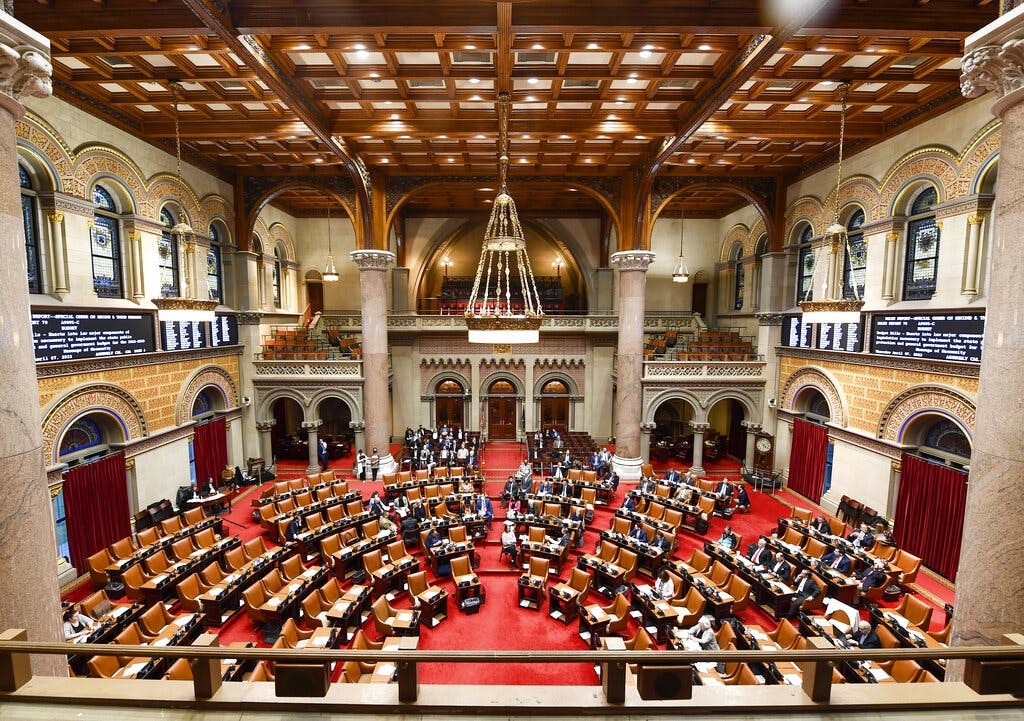Calls for ‘Dangerousness Standard’ Fall on Deaf Ears in New York State
Members of both parties had sought a provision in New York’s budget to allow judges to weigh suspects’ risk to the public, as is policy in every other state.

New York State’s new budget includes changes to the bail and discovery laws but has no mention of a provision sought by both Democrats and Republicans: a policy allowing judges to consider the dangerousness of a suspect when deciding on setting bail or whether to incarcerate before trial.
The budget expands the list of bail-eligible offenses — including felony gun charges, “misdemeanors involving harm to a person or property,” and all hate crimes — but does not include a “dangerousness standard” that would weigh the risk to the public of releasing certain suspects before trial.
The omission has already drawn criticism from Representative Claudia Tenney and the state senate Republican leader, Rob Ortt.
New York has never had a dangerousness standard, making it unique in the United States.
Some see New York’s system as a victory for due process and equality under the law, noting that a dangerousness standard could leave defendants presumed guilty until proved innocent and allow judicial and systemic biases to influence decision making.
Others contend that New York’s lack of such a standard is an oversight by legislators that should be remedied in the interest of public safety.
A policy analyst who is president of the Citizens Crime Commission, Richard Aborn, supports the addition of a dangerousness standard, with some key caveats.
Mr. Aborn said judges should be given “the discretion to look at the defendants’ full record — coupled with a quick review by another judge after any decision” based on the dangerousness standard.
He underscored the importance of the review by a second judge in order to help reduce unequal outcomes in the criminal justice system.
“The law should always do what it can to minimize the chance of unfair outcomes and the criminal law in particular is deeply dedicated to that notion,” Mr. Aborn said.
One of the most important factors, according to Mr. Aborn, was the appointment and election of judges that would apply such a standard equally and judiciously.
A researcher with Envision Freedom Fund, Zoë Adel, expressed opposition to any form of a dangerousness standard being added to New York State law.
“What does it mean to have judges making these decisions when someone is presumed innocent?” Ms. Adel told the Sun.
She added: “We should still be operating from a presumption of innocence — that’s why New York for decades has not allowed dangerousness standards.”
Regardless of judicial bias, she said, “more black and brown people” will be considered “dangerous,” which is “a systemic problem that we’re dealing with.”
Ms. Adel also questioned the effectiveness of pretrial detention, saying, “If locking someone up worked we wouldn’t be in this situation.”
It is worth noting that about one in five people who are released after bail is set are rearrested before trial.
While Ms. Adel and Mr. Aborn disagree on whether New York should implement a dangerousness standard, they agree that any effective crime-reduction policy needs to focus on conditions that influence criminal behavior.
“We have to always be mindful that the drivers of crime are multifaceted and while we are using police as a first line of defense it should never be the only line of defense,” Mr. Aborn said.
Both agreed that the accessibility of jobs, careers, housing, health care, and mental health care are key factors to any long-term reduction in crime.
So, while it appears that the idea of implementing a dangerousness standard via the New York State budget is dead for now, the decades-long debate is unlikely to end with the budget negotiations.

